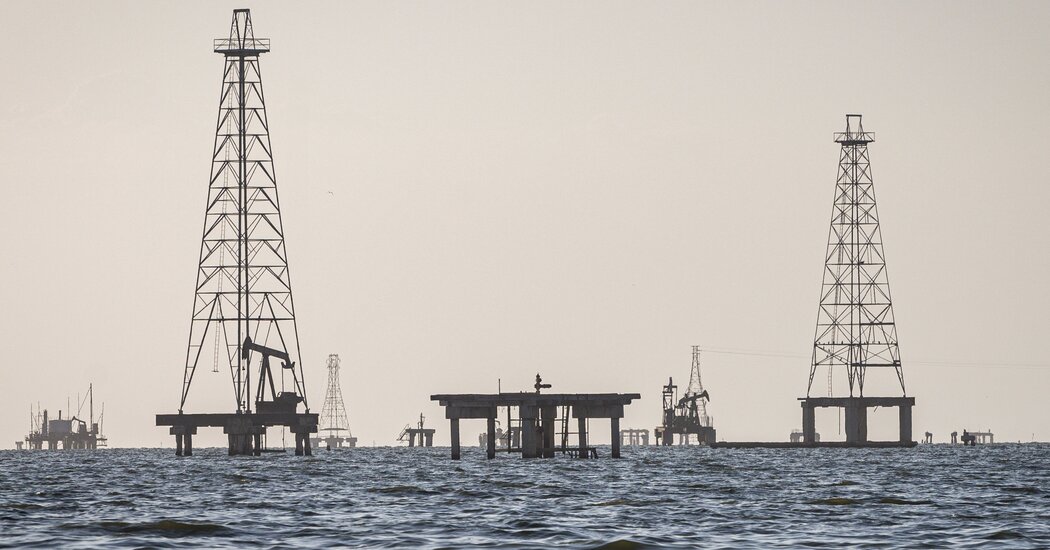President Trump’s threatened tariffs on countries that buy oil from Venezuela are another example of how his trade moves could hit China the hardest even when China is not named as the target.
Mr. Trump announced the 25 percent “secondary tariffs” last week, portraying them as aimed at the authoritarian government of Nicolás Maduro in Venezuela and at the country’s Tren de Aragua gang. The Venezuelan-related tariffs could still be imposed on top of the very steep tariffs that Mr. Trump declared on Wednesday, which bring his new tariffs on Chinese goods to 54 percent.
The biggest buyer of Venezuela’s oil is China — and China is the country least able to stop buying oil from Venezuela.
Venezuela owes about $10 billion to China’s state-run banks, according to AidData, a research institute at William and Mary, a university in Williamsburg, Va., that compiles information about Chinese development financing.
China’s banks need their loans to Venezuela to be repaid. They already face heavy losses on real estate lending at home. On Monday, China’s Ministry of Finance said it would sell about $70 billion worth of bonds to shore up the country’s four largest commercial banks.
But after more than a decade of economic mismanagement, Venezuela has almost no legal exports except oil to raise the money it needs to keep paying its debts to China.
Venezuela’s crude oil is heavily contaminated with sulfur. China’s state-controlled energy giants are among the few companies that have invested in refineries that can handle high-sulfur oil.
Venezuela is one of Beijing’s closest diplomatic allies, making it even harder for China to stop buying its oil. Last summer, when Mr. Maduro won another term as president in an election widely described as rife with fraud, he received a congratulatory note from Xi Jinping, China’s top leader.
A spokesman for China’s foreign ministry, Guo Jiakun, criticized the planned American tariffs last week. “The U.S. has long abused illegal unilateral sanctions and ‘long-arm jurisdiction,’ and grossly interfered in the internal affairs of other countries,” he said.
It was not clear when the tariffs might begin. Last week, Mr. Trump said they would take effect on April 2. But the secretary of state, Marco Rubio, must still determine that countries have purchased Venezuelan oil before the tariffs kick in, according to the Trump administration.
China bought an average of 268,000 barrels of oil per day last year from Venezuela, which had total exports of 662,000 barrels per day, according to Kpler, a company that specializes in tracking oil shipments. The United States bought 234,000 barrels per day, making it the second-largest buyer after China. Separately, Mr. Trump is phasing out American purchases over the next two months.
China represents 62 percent of Venezuela’s exports to countries other than the United States, with India and Spain also buying sizable quantities. The volume of Venezuelan crude oil going to either of those countries has dropped in the past couple of weeks, according to Kpler, in what could be a sign of wariness there about facing extra American tariffs.
Li You contributed research.
